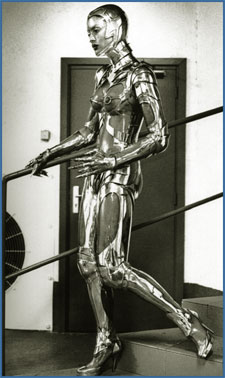 An Open Letter to Town Council
An Open Letter to Town Council
Dear Councilors:
Your town may have an emergency plan, a development plan, a health plan — it may even have a plan for how to fix the potholes (though I doubt it).
But does it have a plan for how to respond to the technological singularity? Is it preparing for all the new economic opportunities? I suspect not.
Now, some have complained that that technological singularity is the “rapture for nerds”, but this couldn’t be farther from the truth. It is the municipal investment opportunity of the ages! Forward-thinking municipal governments can start preparing now, and be ready to reap the rewards of the point in human history when human intelligence is not only exceeded by machine intelligence, but when human intelligence is merged with (or eradicated by) machine intelligence.
You’re thinking: “well, sure I’d love to help get ready for this, but realistically, how do we plan? We don’t even know if regular flesh-and-blood humans will be around to experience the singularity.”
Of course we will!
Ray Kurzweil believes that we’ll be able to model the human brain by 2029, and create algorithms based on those models to allow computers to gain human-like intelligence. But is anyone working on a way for computers to go to bars and get drunk and hook up with other drunken computers so that they can “make a mistake” and then squirt out new computers? I doubt it.
So there you go: invest in light manufacturing. There will definitely be a need for humans to help create our new overlords.
But there’s so many other possibilities! What if the technological singularity is based more on nanotechnology than it is on the gross, large-scale electronics of our current era? Here too, prescient town councils can make good investments for the future. It will certainly be easier for the new machine overlords to replicate themselves in mass quantities if our human immune systems do not fight them at every stage. This leads to so many possible avenues of fruitful research: immune-suppressing drugs, radiation, surgery, bio-engineering, even psychology might (finally) prove itself useful by producing a technique by which humans could allow supra-intelligent nanomachines to use their bodies to reproduce.
We’re only scratching the surface here, obviously.
Many municipalities invest much of their resources in policing and this is an area where they will find huge savings, but only if there is a good interface between humans and our new machine overlords. Apart from the aforementioned research opportunities, municipal governments should begin looking at some kind of cybertronic peace officer corps now, to acclimatize citizens early — after all, an easily controlled citizenry is a productive citizenry! This could be as simple as implanting some kind of control chip in police headgear (hats, caps, flak helmets) to something more radical, such as embedding a semi-live police officers in a mechanical exoskeleton armed with rapid-fire pistols and a loudspeaker-augmented voice.
Municipal leaders should prepare for the darker predictions of how a technological singularity plays out. What if the new machine overlords simply wish to rid themselves of the human population?
There is a simple solution for this problem, and it is summed up in two words: rotating knives.
We’re pretty sure that would never happen, but even if it does, what if you’re the first town to think of it, and sell the process?
Think of the revenue. You could cut taxes. Contact us for more details.
Yours Truly,
Genghis Toon,
President,
Oberdyne Industries, “The Helping Corporation”
Alltop has an investment strategy for funny. Originally appeared on Grasping for the Wind, Aug. 9, 2010.

![]() You had to hand it to Wanda the Happy Ending Pleasure Borg; sure, she was two-thirds titanium alloy with Buckyball Graphite Tetro-Carbon piping, but she had a sweet disposition, a lovely singing voice, and legs that just didn’t stop.
You had to hand it to Wanda the Happy Ending Pleasure Borg; sure, she was two-thirds titanium alloy with Buckyball Graphite Tetro-Carbon piping, but she had a sweet disposition, a lovely singing voice, and legs that just didn’t stop.


